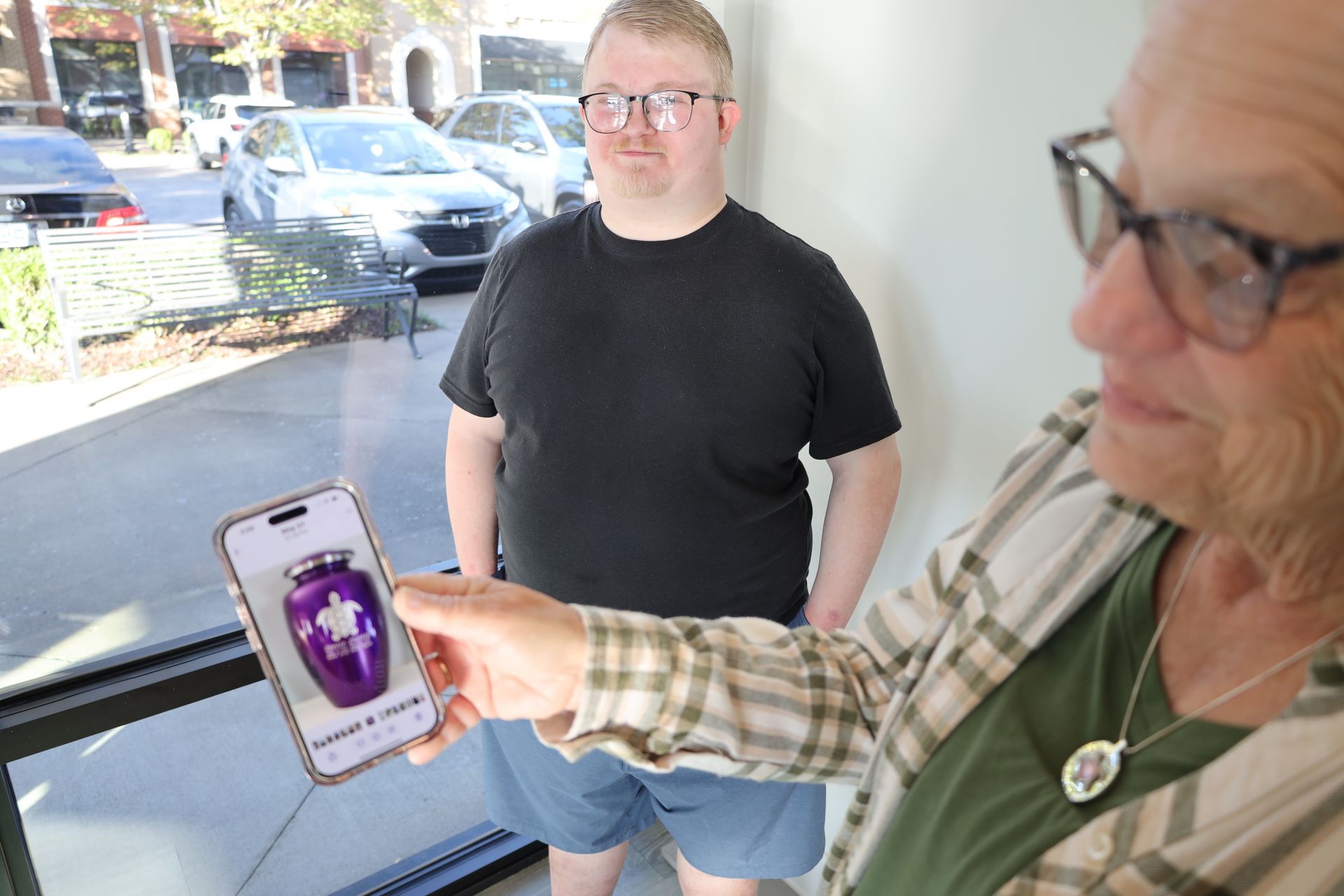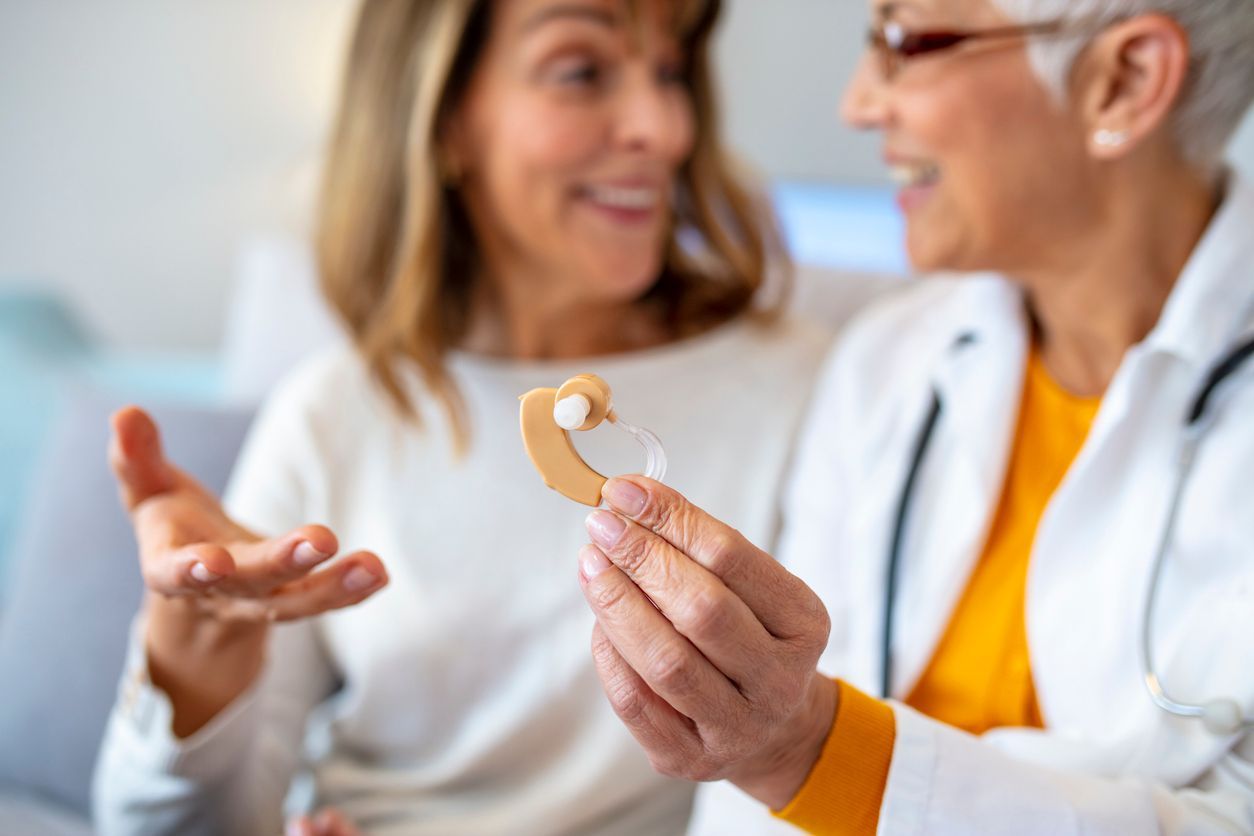Warehouse Stores

Who doesn’t love a warehouse store, right? These establishments are filled to overflowing with a host of useful products for the home—everything from paper towels and chicken fingers in bulk to a new set of tires and a comfy bed for your pooch.
But what about buying medical devices at your local big box store? Few of us would ever consider shopping around for a pacemaker or for the hardware for your knee replacement in the aisles of your neighborhood warehouse store. Yet some turn to these locations for hearing aids—also a medical device—to treat a health condition as important as hearing loss.
Here are some questions to ask when it comes to big box/warehouse stores and your hearing health care.
Are the staff you are working with university-trained audiologists?
The staff at the hearing aid counter at a big box store may have minimal training and expertise. A few stores may have audiologists, but many have hearing aid dispensers.
Is the hearing technology “locked’?
The hearing aid technology at warehouse stores may be “locked,” or proprietary, which means you can only take your hearing aids to that specific chain for service. No other private audiologist or provider can work on them. Many patients do not realize this and find out when they try to take their hearing aids to another practice for repairs or desire help from a more experienced professional.
What generation is the hearing aid technology?
Big box stores may offer technology one or two generations behind current technology available in the private market and sometimes their higher-level products are more comparable to mid-level technologies available privately.
Are repairs and other common services offered?
Most warehouse stores have limited repair options if the store labeled brands (e.g., Kirkland) ends the contracted relationship with the manufacturer for a lower cost vendor or contract. Most also do not provide loaner hearing aids.
Is your audiogram portable?
The store actually owns the results to your hearing test, not you. That means you may not be able to take your test results to another practice for a second opinion.
What if I have an insurance benefit?
Big box stores/warehouses DO NOT accept insurance benefits for hearing aids.
What if I need other audiologic services?
Big box stores do not do wax removal or provide other important full-service audiology care, such as tinnitus testing and treatment or assessment for dizziness and balance disorders.
What will my customer experience be like?
The experience and environment are very different from a professional audiologist’s clinic. They don’t typically pre-schedule routine follow-up appointments. and if you have issues with your hearing aids, it can be a challenge getting help in a busy store that is often on a first-come, first-serve.
By contrast, a private audiology clinic, like Johnson Audiology, offers you a caring, professional hearing health care experience with a goal toward being your partner on your lifelong hearing journey. It’s a relationship building process that goes far beyond just purchasing a hearing aid. Here’s what you can expect from us.
- University-degreed audiologist care for every patient
- A highly trained support staff made up of audiology assistants and patient care coordinators.
- The widest selection of hearing aid technology and products from the world’s most respected hearing aid manufacturers. This means audiologists in other states (say you live in Florida or Arizona in the winter) can service your hearing aids. Some manufacturers and professional partners we work with regularly include: Oticon, Widex, ReSound, Phonak, Lyric, Siemens, Starkey, Westone and CochlearAmerica.
- Hearing device options that take into account your personal circumstances—your hearing loss, your budget, your schedule, your lifestyle. Our audiologists discuss all these factors and goals with you up front so that you can make the most informed decision that is best for you.
- At least a 45-day assessment period to determine your benefit and satisfaction with hearing aids.
- Comprehensive care for hearing loss with diagnostic hearing evaluations and reports sent to your primary care physician. We also provide dizziness, balance, tinnitus and hyperacusis care all within the same full-service, independent and locally-owned professional audiology practice. Your hearing examination results belong to you as a part of your medical record.
- Ear wax removal, a common need for patients.
- A hearing aid loaner program, when appropriate, in the event your hearing aid needs to be sent to the manufacturer for repair. All-make repair options for most brands and older hearing models.
- Monday through Thursday walk-in hours or for hearing aid clean and checks and same-day repairs, along with manufacturer repairs when necessary. Our clinic reaches out by mail when your hearing aids are reaching end of warranty and encouraging you to bring your aids to our office for us to send to the manufacturer for overhaul. The manufacturer will replace components, as necessary, and get your aids in top working order before warranty’s end.
- Utilization of real-ear measurements technology to verify that your hearing aids are fit according to recommended prescriptions for proper hearing and safety. It is estimated only 20 to 30 percent of practices in the country use this advanced technology.
- Recommend and provide regular and critical follow-up appointments for clean and checks, checkups, adjustments, and monitoring of hearing.
- Patients with health insurance may have hearing aid coverage that could help with the costs. We accept Medicare and most other types of health insurance, and we verify whether or not your particular plan has coverage for hearing aids.
- Financing options are available for individuals who qualify.
- An in-house Johnson Audiology Direct program that provides a host of supplies and services for the lifetime of your hearing aids and that is included with your hearing aids.
Based on industry data, only 20 to 25 percent of patients return to purchase a second set of hearing aids from a big box store/warehouse, which speaks volumes about overall customer satisfaction with this avenue for hearing aids. While it may feel like you are spending less at a big box store, the trade-offs may end up costing you more money in the long run. Good value is tied to many variables, and your best value and satisfaction is working with a university-trained audiologist in an independent audiology practice.
Recent Posts



